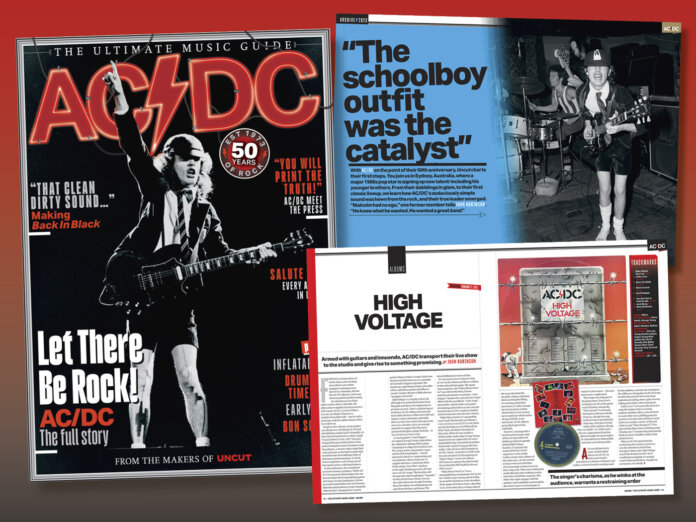Angus Young, I am told by his representative, will phone me at 9.10am precisely on an autumn day in 2014.
As a fan, it’s an exciting message to receive. Of course, we’ll talk about the band’s new album Rock Or Bust. But maybe we’ll also be able to go a bit off-topic and get into Angus’s thoughts on some classics from his catalogue: say, the particular dynamic brilliance of “Down Payment Blues” or “Bad Boy Boogie”. Whose idea was that odd stepped rhythm for the riff on “For Those About To Rock”? Maybe we can get into some other riffs, too.
“You’ll have 10 minutes,” she says.
As it turns out, that’s fine. Angus is a succinct talker not much given to philosophising or reminiscence, which does its own job of explaining why AC/DC have stayed as good as they are for as long as they have. This is a band of extreme focus, pragmatic decisions, and in abeyance to a quality control in evidence from their first recordings (guided by Malcolm and Angus’s older brother George) to their most recent album, //Power Up//. The band has weathered firings, the death of a crucial singer, deafness, alcoholism, an inexplicable spell of criminality, retirement – even the death of a founder member, but still keeps on going.
It’s an enduring quality you’ll find celebrated in this new magazine. In it we’ve reviewed each of the band’s albums, and visited them at key stages in their lifespan – discovering classic interviews from our archive. Particularly good are the reportage pieces which show the band’s developing showmanship. There is something called the “Human kangaroo” which is discussed in a 1976 interview with NME, but it’s too upsetting to go into here.
As it turned out, Angus and I did have a bit of time to get into the building blocks of AC/DC: the riffs. “It can come any number of ways. Sometimes you’ll have a good guitar riff, other times you might just need a good title and it sets you thinking – what if I try this, see how it goes?
“Most of the songs that we’ve ever sat and played about with have been guitar riffs – any songs we came up with, they were always in combination with each other. It’s something we always did. Sometimes we borrowed bits from each other. Like Malcolm would say, “You know that riff you had from that other period? Let’s try that with this…”
Even with Malcolm now departed, the message is still coming through loud and clear. AC/DC will be with us a long time yet.
For those about to get one here… We salute you!



